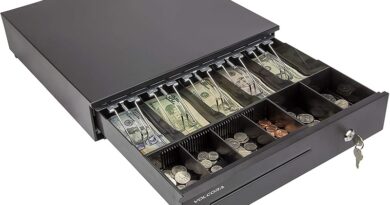Hearing Aids and Music: Enhancing Your Listening Experience
Music is a universal language that brings joy, emotions, and meaning to our lives. For individuals with hearing loss, enjoying the full richness of music can be a challenge. However, with modern advancements in hearing aid technology, music enthusiasts can now experience a more satisfying listening experience. In this article, we will explore how hearing aids can enhance your enjoyment of music, the challenges they may pose, and tips to optimize your musical journey.
The Impact of Hearing Loss on Music Perception
For those with hearing loss, music can lose its depth and complexity. High-pitched tones may become muffled, lyrics may be unclear, and the overall experience can be diminished. Traditional hearing aids, initially designed for speech comprehension, may not fully address the intricacies of music.
Enhanced Music Perception with Hearing Aids
Fortunately, hearing aid manufacturers have recognized the importance of music in people’s lives and have developed specialized features to improve the music listening experience:
- Extended Frequency Range: Many modern hearing aids now offer an extended frequency range, allowing users to hear higher and lower pitch sounds, essential for capturing the full range of musical instruments and vocals.
- Music Programs: Some hearing aids include dedicated music programs that optimize music perception. These programs adjust the hearing aid settings to enhance the dynamic range and preserve the nuances of musical melodies.
- Noise Reduction: Advanced noise reduction algorithms in hearing aids help minimize background noise interference, allowing music to stand out more prominently.
- Directional Microphones: Hearing aids equipped with directional microphones can help isolate and amplify the sounds coming from the front, providing better clarity in music and reducing unwanted background noises.
Challenges and Considerations
While hearing aids have made remarkable strides in improving music perception, there are still some challenges to be aware of:
- Personalization: Hearing aids work best when tailored to an individual’s hearing needs. Customizing the settings to suit your unique hearing profile can optimize the music listening experience.
- Compression: Some hearing aids use compression to make softer sounds audible, but this can affect the dynamic range of music, resulting in a loss of sound quality. Adjustments may be required to find the right balance.
- Hearing Aid Styles: In-the-canal and completely in-canal hearing aids may cause a sense of occlusion, which can impact music perception. Discussing alternative hearing aid styles with your audiologist may help mitigate this issue.
Tips for an Enjoyable Music Listening Experience
To fully embrace the joy of music with hearing aids, consider the following tips:
- Consult Your Audiologist: Share your passion for music with your audiologist during the fitting process, as they can adjust your hearing aid settings to suit your musical preferences.
- Utilize Music Programs: If your hearing aids have dedicated music programs, switch to these settings when listening to music to optimize the experience.
- Experiment with Settings: Try different hearing aid settings while listening to music and find what works best for you. Minor adjustments can make a significant difference.
- Use External Accessories: Some hearing aids offer wireless connectivity to external devices like smartphones or music players. Utilizing these accessories can further enhance your music-listening experience.
Conclusion
Hearing aids have evolved to address the challenges of hearing loss in daily communication and enhance the enjoyment of music. With specialized features, music programs, and advanced technologies, hearing aid users can now again revel in the beauty of melodies, lyrics, and harmonies. By collaborating closely with audiologists and experimenting with hearing aid settings, individuals can optimize their musical journey, reaffirming the powerful connection between music and the human soul.



